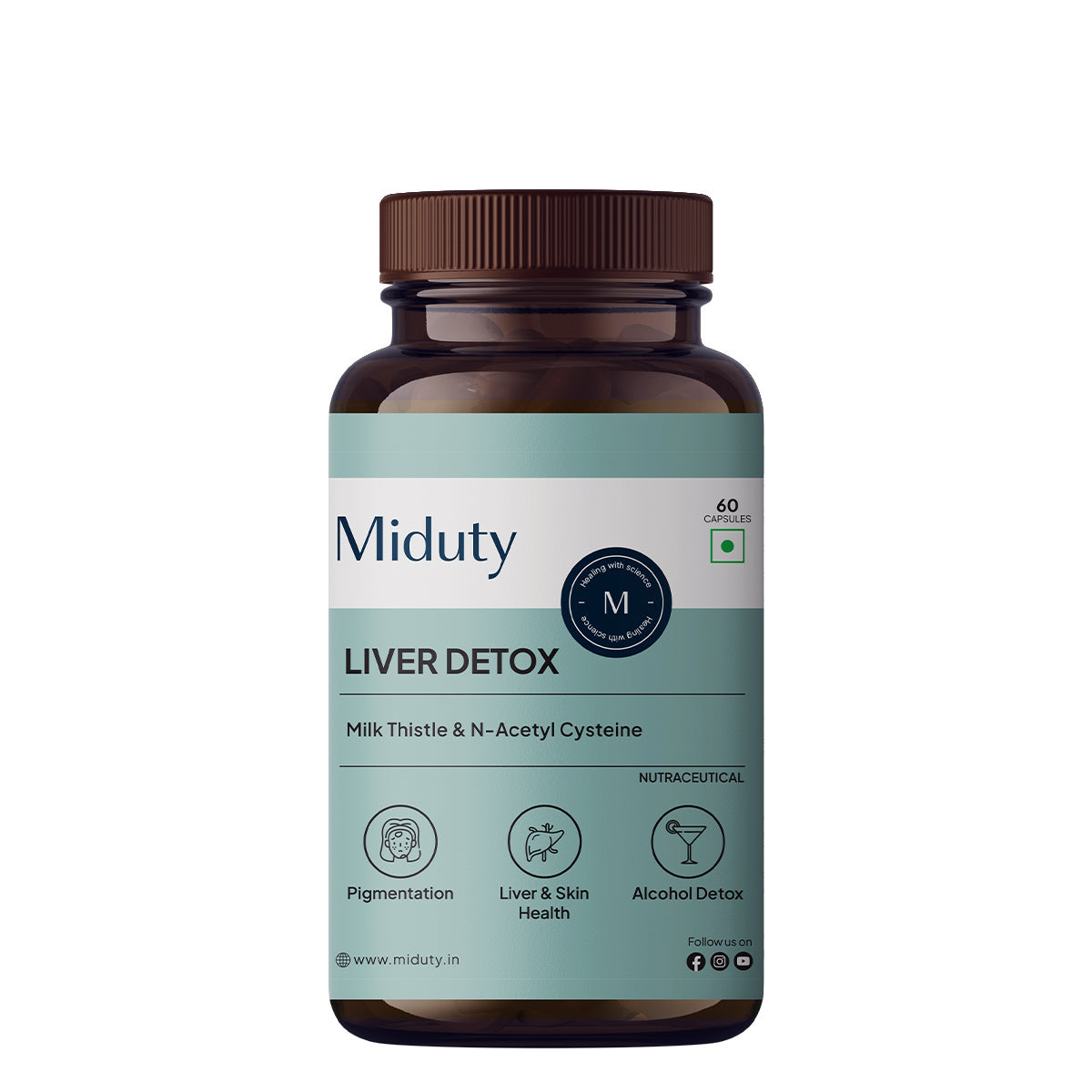
The Science Behind Multivitamins: How They Work for Men's Health
 Share
Share
Hello there, bright young minds! Are you ready to discover the fascinating world of men's multivitamins tablets? Prepare to go on a fantastic journey as I uncover the science behind these incredible tiny wonders that can help maintain our bodies strong and healthy.
Consider your body to be a supercool machine with many parts, similar to a robot. And, like a robot, your body requires specific substances to function efficiently and keep you energized and powerful. These are known as vitamins and minerals. They act as magical building blocks for your body, allowing it to grow, stay strong, and fight off disease.
It might be difficult to receive all the vitamins and minerals we require from our diet. That's where multivitamins come in handy! Multivitamins are like a superhero squad, including all of the vitamins and minerals your body needs to stay healthy.
But, you may wonder, how do these superheroes perform their feats? So, let us find out!
What is the Need of Multivitamins in Men’s Health?
Men's health benefits from multivitamins since they give important elements that may be lacking in their regular diet.
These supplements serve to cover nutritional gaps, promote overall well-being, increase energy levels, strengthen the immune system, and promote proper organ function.
Incorporating multivitamins ensures that men get the vitamins and minerals they need to live a healthier, more vibrant life.
According to research published in the Havard Health School, Men who took multivitamins were 8% less likely to develop cancer. Their shield effect was greatest in men with a history of cancer.
The Role of Multivitamins in Men’s Health

Multivitamins are important for men's health since they provide a variety of key nutrients that may be lacking in their diet. These nutrients enhance general well-being, increase energy levels, improve the immune system, support heart health, and keep critical organs operating properly, allowing men to stay healthy and active.
Nutrition is critical to men's health, with certain nutrients addressing their unique physiological requirements. Men's multivitamins are carefully prepared to supply a variety of critical vitamins and minerals. These are some examples:
Vitamin D: This vitamin is essential for bone health, immunological function, and testosterone synthesis.
Vitamin B12: Aids in the creation of energy, neurological function, and the synthesis of red blood cells.
Zinc: This mineral is necessary for prostate health, testosterone production, and immunological function.
Magnesium: Promotes muscle and nerve function, as well as energy production and testosterone synthesis.
Vitamin C: Improves immunological function, collagen production, and wound healing.
Vitamin E: An antioxidant that protects the body from oxidative stress and improves cardiovascular health.
Selenium: This mineral aids antioxidant defense, immunological function, and reproductive health.
B vitamins: These include thiamine, riboflavin, niacin, and folic acid, all of which are essential for energy metabolism and cardiovascular health.
The Science Behind Multivitamins
In this section, we will look at the science behind the multivitamins. Let’s take a look.
1. Absorption and BioavailabilityThe absorption and bioavailability of the vitamins and minerals contained in multivitamins are one of the important elements determining their effectiveness. The process by which nutrients are taken up by the body is referred to as absorption, whereas bioavailability refers to the amount of a nutrient that is really available for usage by the body.
The absorption and bioavailability of many vitamins and minerals varies. Water-soluble vitamins, such as vitamins C and B vitamins, are well-absorbed by the body and have a high bioavailability. Fat-soluble vitamins, on the other hand, such as vitamin D and vitamin E, require a source of dietary fat for optimum absorption.
Several factors can influence vitamin and mineral absorption and bioavailability, including the form in which they are ingested, the existence of other substances in the intestines, and individual differences in gut health and metabolism. To improve absorption, some multivitamins may use unique formulations or delivery mechanisms, such as microencapsulation or chelation.
2. Vitamin and mineral forms in multivitamins (e.g., synthetic vs. natural)Multivitamins can contain vitamins and minerals in various forms, which can affect their efficiency and bioavailability. The two basic types are synthetic and natural.
Synthetic vitamins are created in a laboratory by chemically replicating the structure and function of naturally occurring vitamins. Because of their stability and low cost, they are frequently employed in multivitamin formulations. Synthetic vitamins can be just as effective as real vitamins since the body recognizes and utilizes them in the same way.
Natural vitamins, on the other hand, come from natural foods. They are obtained using techniques like extraction, isolation, and fermentation. Some believe that natural forms of vitamins are more "bio-identical" than those found in food and may contain extra co-factors or bioactive chemicals that may improve absorption or effectiveness.
However, the labels "natural" and "synthetic" are not regulated, and the quality and absorption of various forms can differ.
It is critical to evaluate the source and quality of the ingredients when selecting a multivitamin. Look for reliable firms that use third-party testing to confirm the potency and purity of their goods and provide transparency about their manufacturing procedures.
3. The Benefits of Combining Multiple Nutrients in One SupplementOne of the key benefits of multivitamins is their ability to supply a variety of critical elements in a single convenient dose. When various vitamins and minerals are mixed in a single formulation, the combined action of the nutrients is larger than the sum of their individual benefits.
Many vitamins and minerals interact with one another in metabolic and physiological processes. Vitamin D, for example, improves calcium absorption, whereas vitamin C improves iron absorption. These interactions can improve nutrient utilization in the body and promote overall health.
Furthermore, certain nutrients have the ability to amplify or alter the actions of others. Vitamin E, for example, has antioxidant characteristics that can help protect and produce vitamin C, allowing it to remain active in the body for a longer period of time. This vitamin synergy can help to improve health outcomes.
It is crucial to note, however, that excessive ingestion of certain minerals might have negative consequences. As a result, adhering to the suggested dosage requirements and not exceeding the acceptable upper consumption levels defined for individual vitamins and minerals is critical.
Understanding the science underlying multivitamins is critical for making informed decisions about how to utilize them. Absorption and bioavailability, vitamin and mineral forms used, and the beneficial effects of mixing various nutrients all play crucial roles.
How to Incorporate Multivitamins into a Healthy Lifestyle?

It is critical to understand that multivitamins should be considered as a supplement to a healthy diet rather than a replacement for it. While multivitamins might be easy to maintain proper nutritional consumption, they should not be used as the only source of critical vitamins and minerals.
Whole meals contain nutrients such as fiber, antioxidants, and phytochemicals that cannot be found in supplements. As a result, it is critical to prioritize a varied and balanced diet rich in fruits, vegetables, whole grains, lean meats, and healthy fats.
2. Nutrient Intake Optimization Through a Balanced Diet and Lifestyle Habits
- Consume a Diverse Range of Nutrient-Dense Foods. Include a variety of vegetables, whole grains, lean proteins, and healthy fats in your meals. This ensures a diverse range of vitamins, minerals, and other useful components.
- Pay attention to your body's hunger and fullness cues to practice mindful eating. Avoid eating in front of a screen and instead, savor and appreciate your meals to cultivate a healthier relationship with food.
- Drink at least 8-10 glasses of water throughout the day to be hydrated. Water promotes general health by aiding nutrient absorption and delivery.
- Regular physical activity is vital for general health. To achieve the best well-being, combine aerobic exercise, weight training, and flexibility exercises.
- Manage Stress. Chronic stress has been shown to have an impact on the absorption of nutrients and utilization. Incorporate stress-reduction practices such as meditation, deep breathing exercises like yoga, or activities that offer you joy.
- Prioritize quality sleep because it is important for overall health and well-being. In order to maintain good physical and mental function, aim for 7-9 hours of unbroken sleep per night.
3. Including Multivitamins in a Comprehensive Wellness Program
Consider the following when including multivitamins into your wellness routine:
Consult a Healthcare expert: Before beginning any new supplement regimen, speak with a healthcare expert who can assess your specific nutritional needs and make individualized suggestions.
Select a High-Quality Multivitamin: Look for multivitamins from recognized companies that have been subjected to rigorous testing to verify quality, potency, and purity. Consider the form of vitamins and minerals utilized, the dosage, and any unique nutrient requirements you may have.
Revolutionize Your Health Routine with Miduty OnePerDay. Packed with essential vitamins and minerals, this multimineral is carefully formulated to include a rich source of veg omega 3, derived from premium plant-based ingredients.
Experience the incredible benefits of omega-3 without compromising your dietary preferences.
You may get all of your important nutrients in just one easy-to-swallow capsule with Miduty Multivitamin OnePerDay Say goodbye to several bottles cluttering your shelf in favour of our all-in-one solution.
Follow Recommended Dosages: Follow the dosage guidelines on the multivitamin container or as directed by your healthcare practitioner. Excessive intake of certain nutrients might be harmful, so stick to the recommended amounts.
Timing and Pairing: Some vitamins and minerals are better absorbed when taken with meals, while others work better when taken on an empty stomach. For optimum absorption, follow the directions included with your multivitamin about timing and mixing with meals or specific nutrients.
Final Words
To summarize, the world of men's multivitamins is fascinating and has enormous potential for improving our general health. We can make informed decisions about multivitamin use and integration into a healthy lifestyle if we understand the science behind them.
Multivitamins are useful supplements, but they should never be used in place of a healthy diet. Because complete foods contain a variety of nutrients that cannot be reproduced in a pill, it is critical to prioritize a balanced and varied diet rich in fruits, vegetables, whole grains, lean meats, and healthy fats.
We should also adopt healthy living behaviors to improve nutrition intake. This involves eating mindfully, staying hydrated, receiving regular physical activity, controlling stress, and getting enough quality sleep.
It is critical to speak with a healthcare professional for specific recommendations when implementing multivitamins into your health program. It is critical to select a high-quality multivitamin from a recognized manufacturer and to follow the suggested dosages and timing guidelines.

